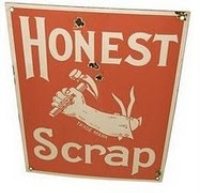Recently, there was a big fuss over a list of "diva demands" that the singer Katy Perry made. When she performed in a concert at Australia, she had very specific instructions for her dressing room: "a dressing room draped in cream or soft pink, with two comfortable egg chairs, a 'perspex modern style' coffee table and two 'french ornate style floor lamps." She also had a very specific driver's policy: "chauffeurs must not start a conversation with Katy, stare at her through the rear view mirror, or ask for autographs or pictures, especially while driving."
I've heard of other "diva demands" that celebrities make. For example, I read an article that said that Van Halen demands "a bowl of M&Ms with the brown ones removed" and Cher demands "a separate room for her wigs". Whenever I hear these types of stories about celebrities, I'm more amused than anything else. They're famous, they're rich, and they let their "power" go to their heads a little (or a lot).
But it made me think of what it would be like if "ordinary" workers like me could make demands of their employers. For example, I recently started a new part-time job selling overpriced souvenirs at the Tourist Trap. It made me reflect on all the retail jobs that I've had over the past several years. I wouldn't dare to actually present my retail employers with a list of demands, because I would definitely get in trouble and possibly lose my job. (Either that or I'd be given a list of b.s. reasons why the employers can't or won't fulfill those demands.) But I thought of a few "requests" that I wish I could make.
1. Give me a uniform that actually fits. All the retail jobs that I've had set up very strict dress codes for their employees: no tattoos, no dyed hair, no "inappropriate piercings", no T-shirts that say "This store SUCKS and everyone who shops here is a SUCKER." Dress codes don't bother me, especially because I wore a uniform for twelve years of Catholic school.
But if you're going to make me wear a uniform with the store's logo printed all over it, do you think you could give me a uniform that isn't two or three sizes too big? And also? If you're going to schedule me to work three days in a row, do you think you could give me more than one uniform? That way I won't have to hand wash my uniform every night (I'm not getting paid enough to use the coin-operated laundry machine more than once a week) or make the choice to not wash my uniform and then worry about customers backing away from me and wrinkling their noses, saying, "What's that smell?"
2. Ease up on the pressure about the "add-ons". When you go shopping, do you ever feel slightly annoyed because the cashier or the salesperson tries to get you to "add on" to the purchase by suggesting additional items that you could buy? Or does the cashier ever try to pressure you to sign up for the store credit card?
It used to annoy me too, until I had to do the same thing at all my retail jobs. FYI, most salespeople don't really want to pressure you to buy something that you don't really need. We also don't like reciting the same sales pitch a hundred (or more) times a day. But we also have supervisors and managers breathing down our necks (this is literally true; sometimes they'll stand there and watch us interact with customers, and then when the customers leave the managers will tell us everything we did wrong) to make sure that we get customers to "add on" to their purchases.
Doing these things helps the store make money. The salespeople are given sales quotas to fulfill each day, and if we don't make our quotas, then one of several things could happen: 1) one of the managers will take us aside and counsel us on how to do our jobs more effectively; 2) we won't get as many shifts as the people who do make their quotas; 3) we won't get chosen as Employee of the Month, and then we won't get the extra few bucks added to our paychecks or the gift card to a restaurant that we couldn't afford to get into otherwise on our paltry wages.
3. If you're not going to let me earn a commission, at least let me keep the tips that customers try to give me. Occasionally a nice customer will have a few cents in change but will tell me to keep it. What the customer doesn't know, however, is that I'm not allowed to keep it. Baristas at coffeehouses are allowed to get tips, but cashiers at retailers are not.
Don't get me wrong. Since I work in retail and not food service, I don't expect tips. It's not like I'm going to set out a "Tips" cup by the cash register. But if a customer offers me a tip, I'd like to keep it, especially since it usually only adds up to a dollar or two a day. And seeing as how the store makes more money in one day than I do in a year, would it really be losing any money if I were to keep those tips? I don't keep them, but it'd be nice if I could. It's not like I'm taking money out of the register, and I would never do that either.
4. Positive reinforcement doesn't mean as much as a salary that I could actually live on. At one of my retail jobs, we were given stickers if we made our sales quota for the day. Getting stickers for good work made me happy when I was ten. But now that I'm thirty and I have expenses that don't include bubble gum and Sweet Valley Twins books, a sticker isn't going to mean much to me. Or my landlord.
I admit that it is nice when my employers praise me for a job well done. But you know what else would be nice? Not having to worry about how I'm going to pay my rent when the store cuts my hours because it's providing paid training to a new group of employees or because it's not making enough money.
5. Please stop micro-managing me. The thing about working in retail is that there are always at least half a dozen supervisors and managers who are watching my every move. I can understand why they want to make sure that every employee is doing his or her job, because one of their main concerns is the bottom line. It is a business after all, and they need to make sure that the store is making money.
But please don't make me refold a whole stack of sweaters that I've been folding for the past ten minutes just because all the size stickers don't perfectly line up, especially since the next group of customers is going to undo the whole stack in five seconds. Please don't reprimand me because I didn't greet that one customer because I was busy refolding those sweaters. Please don't remind me six times in one shift to get as many customers to "add on" to their purchases as possible. Please don't lecture the staff about communication issues if I can't get a straight answer from you about why I didn't get a significant raise (or any raise at all) after working for the store for one year or more. It can be really frustrating to have half a dozen people telling me what to do, and it can be even more frustrating when they keep telling me the same thing over and over and over again, especially if I'm not even making any mistakes. (It's like they're the Energizer Bunnies of retail.)
6. Give me a more reasonable amount of time for breaks. It's not unusual to only get one ten minute break in a five hour shift, or to only get one half-hour lunch break in a six hour shift. On my last shift, I got to sit down for exactly five minutes. That's because it took me more than twenty minutes to navigate the crowd of tourists at the food court, get the free soda that all the employees were raving about as one of our "perks" for working at the store, and find my way back to the breakroom. From now on, I'm just going to bring my lunch, but it's hard to figure out what to bring because there's no refrigerator where I can store it.
I did say that I am grateful to have part-time jobs that can help me pay the bills while I am in graduate school. When I took this job at Tourist Trap, I thought about holding on to it even after the summer ended. It would mean extra money that I could definitely use. But I already have my hands full during the school year with my dissertation, teaching, and my website job; I'm not sure if I could take on another job. I don't think I want to, especially because after my last shift, I came home so tired that I immediately went to bed and slept for four hours. I woke up at ten P.M. and was too tired to eat dinner, so I went back to sleep again and slept through the night. I haven't been that exhausted since I was an adjunct with three jobs, working seven days a week. So it's in situations like these that I don't feel grateful so much as just worn out, angry, and bitter because I can't do anything to change the way retail employees are treated. And I feel even more worn out when I think about how I can't just quit, because I need this job.
Now that I think about it, it does bother me when divas like Katy Perry (though I do love her music) make outrageous demands, especially since "commoners" like me aren't in a position to make demands of our employers. If I were to present any of my retail employers with these requests, I'm fairly certain that there would be at least a dozen people waiting to take my job if I were to "act out" too much.
If you could present your employer with a list of "demands", what would they be? (I'm not suggesting you actually do this.) But if you could do it, what kinds of things would you ask for?
Books Read Part 5
-
[image: B]ooks!
I still can't keep up with the books read list!
Here, then, is another slew of photos!
Three that didn't make it into the photos: Diary of...
3 days ago







